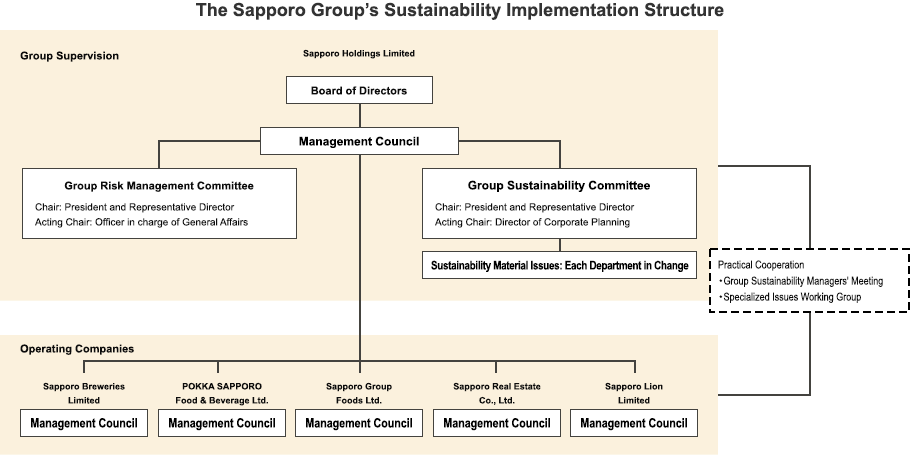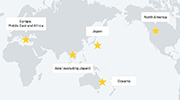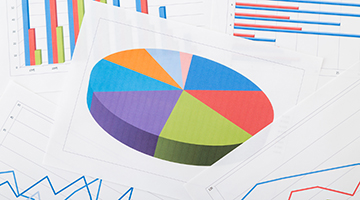Sustainability Material Issues and Implementation Structure
Sustainability Material Issues
The Sapporo Group evaluates “the degree of impact of our business on society and the environment“ and the degree of impact of society and the environment on our finances in terms of risks and opportunities designating nine Sustainability Material Issues that the Group considers particularly important and will focus on in its business activities. In response to changes in the social and business environment surrounding the Group, we periodically review these material issues, and some have been updated for 2025.
Among these, we have positioned “realization of a decarbonized society,” “realization of a society in harmony with nature,” “mutual prosperity with local communities,” “promoting responsible drinking,” and “active participation of diverse human resources” as issues of particular importance in our management.
Risks and Opportunities by Material Issues
| Classification | Most Important Issues | Material Issues | Specific Initiatives | Impact of Our Business on Society and the Environment | Social/Environmental Impact on Corporate Finances | Relevance to Each Business | Connection to Economic Value | |||||
|---|---|---|---|---|---|---|---|---|---|---|---|---|
| Risk | Opportunity | Risk | Opportunity | Alcoholic Beverages | Restaurants | Food Beverages | Real Estate | |||||
| Harmony with the Environment | ● | Realization of a decarbonized society |
|
Large | Large | Large | Medium | ◎ | ◎ | ◎ | ◯ |
|
| Realization of a recycling-based society |
|
Large | Medium | Large | Medium | ◎ | ◎ | ◎ | ◯ |
|
||
| ● | Realization of a society in harmony with nature |
|
Large | Medium | Large | Medium | ◎ | ◯ | ◎ | ◯ |
|
|
| Co-prosperity with Society | ● | Mutual prosperity with local communities |
|
Medium | Large | Medium | Large | ◎ | ◎ | ◎ | ◎ |
|
| Providing health value |
|
Small | Large | Small | Large | ◯ | ◯ | ◎ | ◯ |
|
||
| ● | Promoting Responsible Drinking |
|
Large | Large | Large | Large | ◎ | ◎ | △ | △ |
|
|
| Success of Human Resources | ● | Active participation of diverse human resources |
|
Small | Medium | Large | Large | ◎ | ◎ | ◎ | ◎ |
|
| Building a sustainable supply chain |
|
Large | Small | Large | Small | ◎ | ◎ | ◎ | ◯ |
|
||
| Providing Safe Products and Facilities |
|
Large | Medium | Large | Medium | ◎ | ◯ | ◎ | ◯ |
|
||
Sustainability Material Issues Targets and Indicators
* Target setting company notation SH: Sapporo Holdings, SB: Sapporo Breweries, PS: POKKA SAPPORO Food & Beverage, SRE: SAPPORO REAL ESTATE, SLN: Sapporo Lion, SGF: Sapporo Group Foods, SBL: Sleeman, SAS: Sapporo Stone Brewing, SVL: Sapporo Vietnam, YSM: Yasuma, FBS: Foremost Blue Seal, PK: Pokka, SSI: Shinsyu-ichi Miso
* Certified by Science Based Targets Initiative (SBTi)
| Classification | Most Important Issues | Material Issues | Specific Initiatives | Indicators | Targets Setting Companies | Target Year | Targets | SDGs | |
|---|---|---|---|---|---|---|---|---|---|
| Harmony with the Environment | ● | Realization of a decarbonized society | Reducing greenhouse gas emissions at company sites and supply chains |
|
Sapporo Group | 2030 |
|
   |
7.2 13.1 17.17 |
| Sapporo Group (SB, SBL, PS) |
|
||||||||
| Creating a Recycling Society |
|
|
PS | 2030 |
|
  |
12.3 12.4 12.5 14.1 |
||
|
SB | 2030 |
|
||||||
| Reduction of waste and food loss |
|
SLN |
|
||||||
|
SB, PS |
|
|||||||
| Conservation of Water Resources |
|
SVL | 2030 |
At Long An Factory:
|
 |
6.4 | |||
|
SB, SBL, SAS, SVL, PS, PK, YSM, SSI |
|
|||||||
| ● | Realization of a society in harmony with nature | Mitigation Measures for Climate Change and Measures to Reduce Impacts on Nature |
|
SB | 2030 |
|
  |
13.1 15.4 |
|
| Crop cultivation that responds to climate change, Facility/community development that coexists with nature |
|
SB | 2030 |
|
|||||
| Co-prosperity with Society | ● | Mutual prosperity with local communities |
|
|
SRE |
|
    |
4.7 8.9 11.3 11.7 17.17 |
|
|
SB |
|
|||||||
|
PS |
◆Long-term
|
|||||||
|
PS, SGF | 2030 |
|
||||||
| Providing health value | Provision of health value through business |
|
PS | 2030 |
|
   |
2.1 3.4 11.3 |
||
|
PK | 2030 |
|
||||||
|
SRE |
|
|||||||
| ● | Promoting Responsible Drinking |
|
|
SB | 2025 |
|
 |
3.5 | |
|
SB, SLN |
|
|||||||
|
SB | 2026 |
|
||||||
| SLN | |||||||||
|
SB | 2027 |
|
||||||
|
SLN |
|
|||||||
|
SLN |
|
|||||||
| Success of Human Resources | ● | Active participation of diverse human resources | Promotion of Diversity, Equity & Inclusion (DE&I) |
|
SH, SB, PS, SRE, SLN | 2026 |
|
  |
5.5 8.5 |
| SBL |
|
||||||||
| SVL |
|
||||||||
| PK |
|
||||||||
|
SH, SB, PS, SRE, SLN | 2026 |
|
||||||
| SH | 2030 |
|
|||||||
| SH, SB, PS, SRE, SLN |
|
||||||||
| Investing in human capital for growth and productivity |
|
SH, SB, PS, SRE, SLN | 2026 |
|
|||||
|
SH, SB, PS, SRE, SLN | 2026 |
|
||||||
|
SH, SB, PS, SRE, SLN | 2026年 |
|
||||||
| Building a sustainable supply chain |
|
|
SB, SBL, SAS, SVL, PS, PK, YSM, FBS, SSI, SLN |
|
   |
10.2 15.3 17.17 |
|||
| SB, PS |
|
||||||||
|
Sapporo Group |
|
|||||||
|
SB, SBL, SAS, SVL, PS, PK, YSM, FBS, SSI, SLN |
|
|||||||
| SB, PS | 2025 |
|
|||||||
| Promoting Safe Products and Facilities | Food safety |
|
SB, SBL, SAS, SVL, PS, PK, FBS, SSI, SLN |
|
 |
2.1 | |||
| Building safe facilities |
|
SRE |
|
 |
11.3 | ||||
* Counts for more than 2/3 of the relevant emissions of the entire Sapporo Group (Inserted below the box in the list)
Sapporo Group Environmental Vision 2050
Sustainability Material Issues: Click here for the latest list of Progress and Achievements (127KB)
* This indicates the progress toward material issues, indicators, and targets under operation until 2024.
Process for Identifying Material Issues
Step 1: List the issues
- Comprehensive list of sustainability issues based on international frameworks such as GRI standards, SASB, and ESG rating assessment items
- Extract items from the list of issues that are particularly relevant to the Sapporo Group's business type and format
Step 2: Prioritize issues
- Based on the issues identified, score the "degree of impact of the business on society and the environment" and the "degree of impact of society and the environment on our finances" from the aspect of "risk and opportunity" for each business
- Prioritization at Sapporo Holdings and major operating companies based on relevance to vision and management strategy
Step 3: Advice from external experts
- Dialogues with external experts from both the investor and multi-stakeholder perspectives were held to obtain objective advice on priority issues
External experts who participated in the dialogues
- Mr. Minoru Matsubara, Executive Officer and General Manager of Responsible Investment Division, Resona Asset Management Co., Ltd.
- Ms. Makiko Akabane, CSR Asia Japan Representative
In addition to the assessment that we have captured important issues in the Group's business, we have received the following perspectives.
- Linkage between business strategy and sustainability material issues
- Implications of each issue for business development using natural capital
- Financial implications in terms of both risks and opportunities
- The importance of clearly stating the Group's specific efforts to address each issue
- Value of raw materials, regional initiatives, etc.
- Disclosure of specific strategies for human capital
Step 4: Approval of priority issues
- Approval of the final identified material issues by the Management Council and the Board of Directors
Sustainability Implementation Structure
Sapporo Holdings has established a Group Sustainability Committee, chaired by the President and representative director of the Company, as an organization that formulates an overall policy for the promotion of the Group's sustainability activities and ensures cooperation and coordination within the Group.
The Corporate Planning Department of Sapporo Holdings develops and implements various measures to promote sustainability activities in each Group company, and works with sustainability personnel at operating companies to share information and confirm progress.

Group Sustainability Committee
- Meetings are basically held twice a year
- Main topics of discussion
- Monitoring of the performance against the sustainability material issues
- Review of strategies and policies for each issue
- Discussions, resolutions, reports, etc. at the Management Council and Board of Directors meetings according to the agenda



















